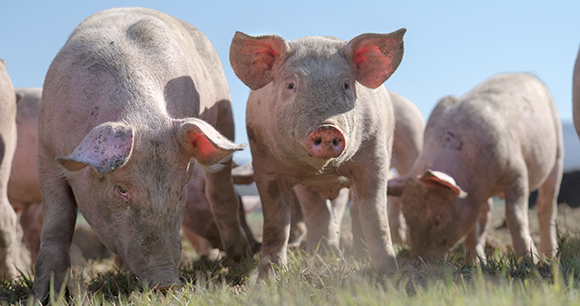
Washington, DC—At long last—and with little time to spare—leaders in the US House of Representatives and Senate have released a $1.7 trillion omnibus spending package for the remainder of fiscal year 2023. For animals, the bill offers a mixed bag.
Among the positive developments:
Animal Welfare Act (AWA) enforcement:
The omnibus appropriations bill, which still must be passed by the House and Senate, continues its long-standing prohibition on the licensing under the AWA of Class B dealers who seek to sell dogs and cats acquired from random sources for use in experimentation.
It also requires US Department of Agriculture personnel to record all observed violations of the AWA on official inspection reports, and reminds the USDA’s Agricultural Research Service that research facilities included in a memorandum of understanding will continue to be subject to Animal Welfare Act compliance inspections.
Horse protections:
The bill continues to prohibit the slaughter of horses for human consumption in the United States by blocking the operation of horse slaughter facilities on US soil.
It also sets aside $11 million for the administration of proven humane fertility control methods to keep wild horses and burros on the range, and protects herds from lethal control methods and from being destroyed for commercial purposes.
The legislation provides more than $4 million for Horse Protection Act enforcement—an increase of over $1 million from fiscal year 2022—to combat abuses associated with horse soring.
It strengthens the Horseracing Integrity and Safety Act by clarifying the Federal Trade Commission’s oversight authority. The horseracing bill, which passed in the fiscal year 2021 omnibus, aims to protect thoroughbred racehorses by stamping out the industry’s reliance on performance-enhancing drugs and improving racetrack safety.
Grants to help survivors of domestic violence and their companion animals:
The omnibus provides $3 million for grants to enable service providers for domestic violence survivors to create or expand programs to assist survivors with companion animals.
Farm animal gains:
The bill directs the USDA to work with producers to develop disaster preparedness plans to prevent farm animal deaths and injuries during extreme weather events.
It ensures that all Food Safety and Inspection Service (FSIS) inspection personnel receive training in humane handling regulations, and that FSIS continues to provide public access to quarterly reports of humane handling activities.
The spending package improves transparency related to the handling of birds at slaughter by directing the USDA to report on instances where slaughter facilities were not operating in accordance with directives to reduce animal mistreatment.
It also directs the USDA to reform its process for approving animal-raising claims on meat and poultry products so that advertised claims are meaningful and reflect consumer expectations regarding the treatment of animals.
Captive marine mammals:
The USDA is directed to prioritize and reissue a proposed rulemaking for regulations related to the handling and care of marine mammals in captivity. Nearly four decades have passed since the last update, and marine mammal science has made significant progress in that time. This science should be used to inform care and maintenance regulations, such as increasing minimum space requirements, establishing species-specific ambient temperature ranges, and mitigating the effects of noise.
Wildlife wins:
The bill directs the US Fish and Wildlife Service (USFWS) to review Trump-era trophy hunting policies that reduced transparency in the import permitting process, and to report back to Congress about how to determine whether trophy hunting of African elephants and lions harms their population numbers.
It also instructs the USFWS to brief Congress on nonlethal methods that could replace trapping for wildlife management purposes on national wildlife refuges.
Additionally, the bill directs the USDA to report to Congress on how the department will improve its implementation of the new Mink SARS–CoV–2 Transmission Avoidance and Monitoring Plan (Mink STAMP) program, which is designed to monitor for COVID-19 infection on mink farms and minimize the risk of virus transmission among mink, humans, and other animals on and around mink farms.
Included in the bill is the Driftnet Modernization and Bycatch Reduction Act, which calls for phasing out the use of large harmful mesh drift gillnets in federal waters. These nets trap and kill large numbers of non-target marine species, including whales, dolphins, and sea lions.
Bad news for biodiversity:
While the spending package includes some additional funding for the USFWS, the amount is still less than is needed to address the backlog of endangered species listing decisions. Chronic underfunding for the listing program has resulted in many animals and plants waiting over a decade to receive protections under the Act Unfortunately, the bill still contains a long-standing provision that prevents the greater sage-grouse from being listed under the Endangered Species Act.
Despite protests from across the country, lawmakers made the egregious decision to include a last-minute policy rider that will all but ensure the extinction of the critically endangered North Atlantic right whale. The rider would give the lobster fishing industry six more years to avoid key conservation measures aimed at preventing right whales from becoming entangled in fishing gear. Read more here.
AWI Executive Director Susan Millward said: “We greatly appreciate the hard work by so many members of Congress to include provisions that will improve animal welfare, but we cannot deny that we are horrified by the last-minute addition of language that puts the very existence of the North Atlantic right whale in grave jeopardy.”
Marjorie Fishman, Animal Welfare Institute
[email protected], (202) 446-2128
The Animal Welfare Institute (awionline.org) is a nonprofit charitable organization founded in 1951 and dedicated to reducing animal suffering caused by people. AWI engages policymakers, scientists, industry, and the public to achieve better treatment of animals everywhere—in the laboratory, on the farm, in commerce, at home, and in the wild. Follow us on Facebook, Twitter, and Instagram for updates and other important animal protection news.